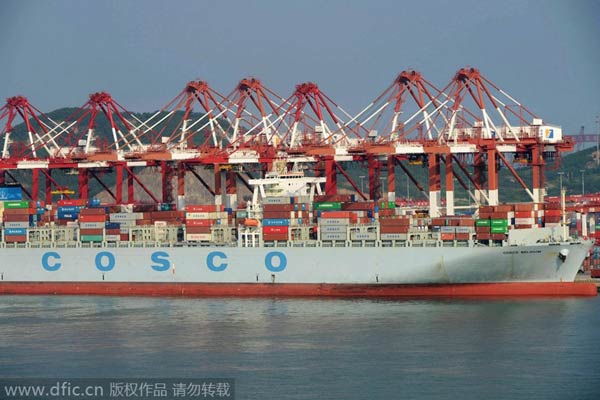 |
|
A fully-loaded container ship of COSCO departs from the Port of Qingdao in Qingdao city, East China's Shandong province, August 8, 2014. [Photo/IC] |
On Jan 27, hours after taking office, the new Greek government halted the privatization of the country's largest port in Piraeus. Since China's COSCO Group was likely to win part of the privatization bid for the port, which is also the starting point of a planned China-Europe land-sea "express line", many observers say China's investment in Greece now faces an uncertain future.
Such concern is unnecessary. Widely acknowledged as the "anti-bailout" government, the new dispensation in Greece is opposed to a series of deals the previous governments signed with the European Union and the International Monetary Fund, of which selling 67 percent of Piraeus Port's shares is only one. And the new Greek government's move is not aimed against COSCO, which is rather a powerful competitor in the open tender than an actual winner.
Some people believe the Greek government's decision could result in a huge loss for COSCO, which had invested 800 million ($905.8 million) in the port's construction. The fact, however, is that COSCO spent the money on No. 2 and No. 3 piers at the port, for which it got a 35-year management lease way back in 2008. And since the Greek government's move will not nullify the existing deal, there is no need to worry about its political or economic consequences.
Besides, the Greek government is mainly opposed to certain measures of the bailout programs that are aimed at reducing the country's expenditure and adjusting the economic structure and thus could make life in Greece painful. And given that selling the shares of the port to private bidders will generate additional revenue, the Greek government may not be averse to it.
Every government has to find the best way to balance its sheet. The more the new Greek leaders oppose cutting financial expenditure, the more revenue they will need. The only reason they oppose privatization of ports is that the move is part of a series of bailout programs linked with the tightening measures which they so intensely hate. But with the increase in financial pressure with the passage of time, they will have to change their mind.

I’ve lived in China for quite a considerable time including my graduate school years, travelled and worked in a few cities and still choose my destination taking into consideration the density of smog or PM2.5 particulate matter in the region.